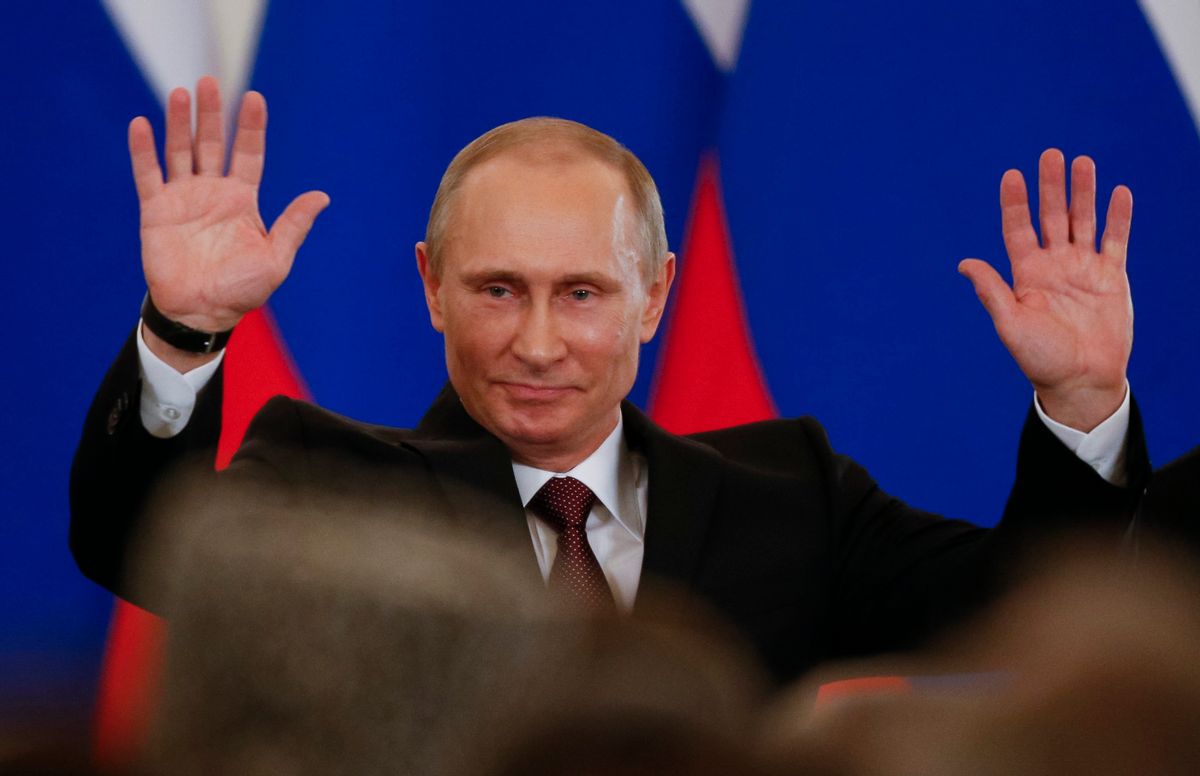If Trump is sworn in as president, there will be a terrorist attack on U.S. soil within his first 100 days. [Editor's note: Or anytime early in his term; the results would be the same.] In response to this terrorist attack, pundits will say America must rally behind the president, that we must put the disputed election, the CIA intelligence of tampering, the bruised egos and hurt feelings behind us and come together to fight the outside threat. And we’ll do it, and Trump will no longer be the unpopular buffoon in office with a giant asterisk and no mandate. He will be entrenched on the throne.
The attack will happen either because groups that have been plotting for years recognize the first days in the reign of a uniquely unqualified puppet of corporate interests as an opportunity (see here), or it will occur with the complicity of Trump’s corporate interests and their shadowy intelligence services in order to shore up support for their uniquely unqualified stooge.
The daily revelations of Trump’s ties to Russian intelligence services and business interests, as well as his appointment of Russian “Order of Friendship” winner Rex Tillerson as secretary of state, make this dire prediction plausible.
Why? Because it’s happened before.
In the fall of 1999, just months after then-unknown former FSB agent Vladimir Putin had been sworn in as prime minister of Russia, someone began bombing apartment buildings. Over the course of two terrible months, hundreds of people died in the series of explosions around the country and thousands were injured. As Masha Gessen tells it in her book The Man Without a Face, “panic set in all over the country.” The majority of the country assumed Chechen terrorists were responsible. Paranoia became the national mood and vigilante surveillance the national pastime. Into this chaos stepped Vladimir Putin.
“Putin made one of his first television appearances,” Gessen writes, “‘We will hunt them down,’ he said of the terrorists. ‘Wherever we find them, we will destroy them. Even if we find them in the toilet. We will rub them out in the outhouse.'...His popularity began to soar.”
Putin never looked back. Over the next 17 years, Putin , the uniquely unqualified newcomer to political office , became a global authoritarian. Russia was never the same.
Since those fateful days, experts around the world have come to agree that the Russian government was complicit in the terrorist bombings that swept Putin into power.
In the U.S., reporters as ideologically far apart as the National Review and the New York Review of Books have come to the same conclusion.
From the National Review:
“The evidence is overwhelming that the apartment-house bombings in 1999 in Moscow, Buinaksk, and Volgodonsk, which provided a pretext for the second Chechen war and catapulted Putin into the presidency, were carried out by the Russian Federal Security Service (FSB).”
From the New York Review of Books:
“The evidence...makes an overwhelming case that Russian authorities were complicit in these horrific attacks.”
Primarily and most astonishingly, the evidence is simple. The FSB was caught red-handed planting bombs in an apartment building.
Again, from the National Review:
"...a fifth bomb was discovered in the basement of a building in Ryazan, a city southeast of Moscow, and those who had placed it turned out to be not Chechen terrorists but agents of the FSB. After these agents were arrested by local police, Nikolai Patrushev, the head of the FSB, said that the bomb had been a fake and that it had been planted in Ryazan as part of a training exercise. The bomb, however, tested positive for hexogen, the explosive used in the four successful apartment bombings.”
And from the NYRB:
“Residents of an apartment complex had reported unusual activity in the basement and observed that three people in a car with partially papered-over license plates had unloaded sacks whose contents they couldn’t make out. A professional bomb squad arrived and discovered that the sacks contained not only sugar but also explosives, including hexogen, and that a detonator was attached. After the sacks were examined and removed, they were sent by the local FSB to Moscow. The entire apartment building was evacuated. Local authorities found the car used by the three who had planted the explosives, a white Zhiguli, in a nearby parking lot. To their astonishment the license plates were traced to the FSB.”
In case that isn’t enough, there’s also conclusive evidence the FSB had advanced knowledge of the previous bombings, and at the very least, refused to step in to stop them. And Hexogen, the ingredient found in all of the bombings, as well as the sacks in Ryazan, could at the time only be obtained from government facilities controlled by the FSB.
So, to summarize: In 1999 the FSB, the same organization now suspected of tampering in the U.S. election to tip it in favor of Donald Trump, was caught in the act of planting bombs in civilian apartment buildings in Russia in order to sow chaos and consolidate power for its disputed leader of choice.
Surely, we’d never accept such a blatant power grab or allow ourselves to be manipulated so easily here in the U.S. Surely there’s no way that the people complicit in bombing their own people would be left free to hold onto power, and even if they were, that we would let evidence of them tampering in our own presidential election slide? Right?




Shares